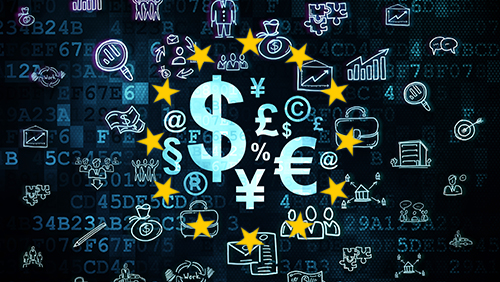The European Union doesn’t see any need to regulate the “hyped” virtual currencies. At least, not yet.
Digital currencies are largely self-regulated and not backed by a central bank, making it popular as an alternative to fiat currency. However, the collapse of bitcoin exchange Mt. Gox in 2014 raised the issue of consumer protection in the experimental sector.
Bitcoin has also gotten a bad rap in 2013 after authorities in the United States uncovered Silk Road, a notorious “deep web” operation known for allowing its users to buy and sell drugs and other transactions involving a wide range of illegal practices, including hiring hitmen, using virtual currency.
The attack on Paris—in which hackers claimed terrorists used Bitcoin to fund the operation—hasn’t helped either, and only sparked renewed debates on the potential of digital currencies to be used to finance terrorism and money laundering.
